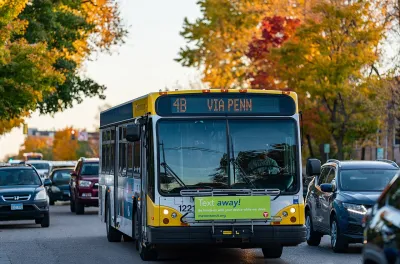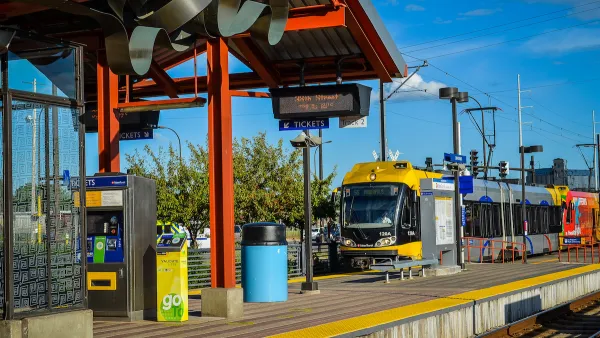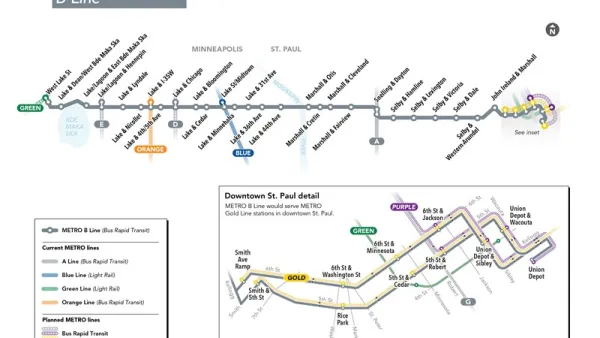The free fare pilot program is only partially complete, but even if it is deemed “successful,” it is unclear how — or if — Metro Transit plans to adopt free fare policies for the long term.

The first six months of a 18-month free fare pilot program in the Twin Cities has brought a double-digit increase in ridership, according to a recent Axios article. Since fares were waived on two popular bus routes, ridership along those routes have grown by 38 percent and 18 percent; overall Metro Transit bus ridership grew only 11 percent over the same time period, writes Axois reporter Nick Halter.
The pilot program was mandated by the Minnesota Legislature last year, a natural continuation of a 2021 reduced fare pilot program, according to State Rep. Sydney Jordan. Jordan told Axois the program has gotten good feedback in her district. “There's a lot of good data that shows that we should look more into this," she said.
Those next steps won’t become clear until the transit agency provides a full report once the pilot is over. But, Halter reports, it seems unlikely the Metro Transit will be made a fully free system any time soon. For one, there isn’t enough support at the legislature for that kind of action. The transit agency is also currently implementing a $37.7 million upgrade of its payment system and counts fare enforcement as one of its tools for increasing public safety on light rail trains.
However, some people argue that free fares could be a better long-term approach for safer buses and trains. State Rep. Brad Tabke, who authored a transit safety bill last session, told Axios that having free fares helps get more people on transit, which ultimately makes it safer. Whether that plays out in the final data from the pilot remains to be seen.
FULL STORY: Metro Transit's free fare pilot drives big ridership increase in Twin Cities

Analysis: Cybertruck Fatality Rate Far Exceeds That of Ford Pinto
The Tesla Cybertruck was recalled seven times last year.

National Parks Layoffs Will Cause Communities to Lose Billions
Thousands of essential park workers were laid off this week, just before the busy spring break season.

Retro-silient?: America’s First “Eco-burb,” The Woodlands Turns 50
A master-planned community north of Houston offers lessons on green infrastructure and resilient design, but falls short of its founder’s lofty affordability and walkability goals.

Test News Post 1
This is a summary

Analysis: Cybertruck Fatality Rate Far Exceeds That of Ford Pinto
The Tesla Cybertruck was recalled seven times last year.

Test News Headline 46
Test for the image on the front page.
Urban Design for Planners 1: Software Tools
This six-course series explores essential urban design concepts using open source software and equips planners with the tools they need to participate fully in the urban design process.
Planning for Universal Design
Learn the tools for implementing Universal Design in planning regulations.
EMC Planning Group, Inc.
Planetizen
Planetizen
Mpact (formerly Rail~Volution)
Great Falls Development Authority, Inc.
HUDs Office of Policy Development and Research
NYU Wagner Graduate School of Public Service




























